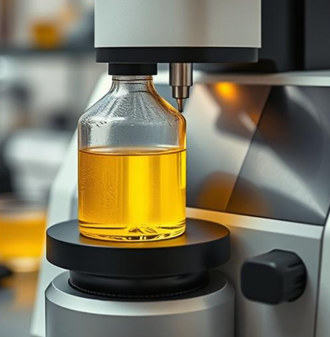The quality and authenticity of olive oil are key factors for both commercial positioning and regulatory compliance, as well as for consumer trust. However, common practices such as blending with lower quality oils or oils from other plant species seriously compromise the integrity of the product, resulting in economic losses throughout the entire production chain. These factors have created a need to develop technologies capable of verifying the quality of olive oil in situ and detecting potential adulterations, ensuring traceability and suitability of the final product.
To solve this problem, researchers from the Universidad Pública de Navarra (UPNA) have developed a method and device to analyze the quality of virgin and extra virgin olive samples. The technology developed by the research team at UPNA uses ultraviolet light and spectral analysis to accurately detect adulteration in olive oil samples. The system illuminates the sample with a specific wavelength in the ultraviolet range, inducing a controlled degradation of the oil that alters its optical spectrum depending on its composition. The analysis of these changes in the shape and temporal evolution of the spectrum makes it possible to identify whether the oil has been blended with other vegetable oils or subjected to fraudulent treatments. This enables fast and reliable quality control at the origin or on the production line, providing real-time monitoring.

The research team has already validated the efficiency of the developed system at a lab scale and at oil production facilities. Two functional prototypes have been assembled and used for testing, having proved the efficiency of the technology.
The method for determining if virgin and extra virgin olive oil is adulterated has been protected through a European patent application submitted in April 2025.
Benefits:
- Offers a simple, non-destructive system to identify blends with other oils, eliminating the need for bulky equipment.
- It allows users to obtain results rapidly, determining if the analyzed oil is adulterated in minutes.
- The system can be easily integrated into olive oil production lines, streamlining the analysis of its quality.
- The device offers a user-friendly interface, which avoids the need for specialized staff to operate it.
The represented institution is looking for a collaboration that leads to commercial exploitation of the presented invention.
Institution: Universidad Pública de Navarra (UPNA)
TRL: 6-7
Protection Status: Patent application
Contacto: Carlos G. Gredilla / c.gredilla@viromii.com

